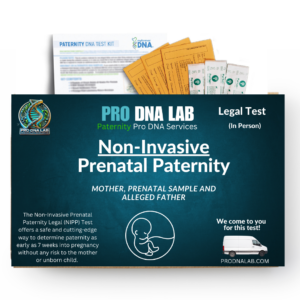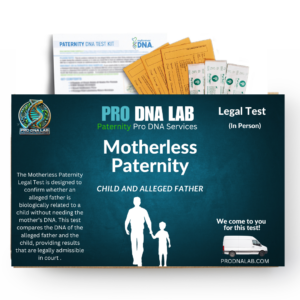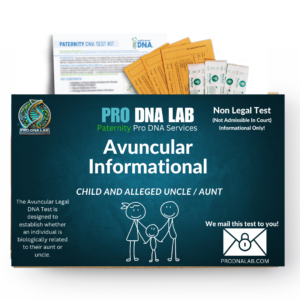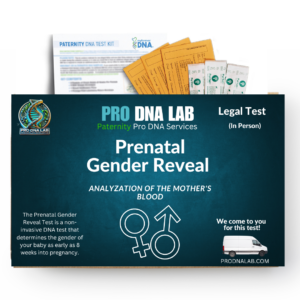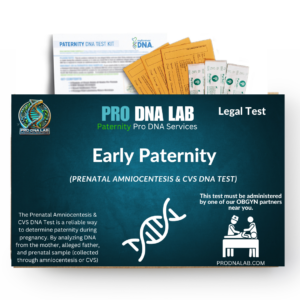Are you a father who wants to confirm your biological connection to your child? Or perhaps an expecting mother who wants to know the paternity of her unborn baby? In these situations, a paternity test can provide the answers you need. But with so many options available in the market, which one is the most accurate paternity test? In this blog post, we’ll dive into the different types of paternity tests and help you understand the most accurate option for your specific situation.
Non-Invasive Prenatal Paternity Testing
Non-invasive prenatal paternity testing is a relatively new method that has gained popularity in recent years. This type of test can be done as early as 9 weeks into the pregnancy and involves collecting a sample of the mother’s blood, which contains fetal DNA. The DNA is then analyzed to determine the paternity of the baby.
One of the main benefits of this test is that it is completely non-invasive, meaning there is no risk to the baby or the mother. It also has a high accuracy rate of 99.9%, making it one of the most accurate paternity tests available. However, it is important to note that this test can only determine paternity and cannot provide any information about genetic conditions or health risks.
Legal Paternity Testing
Legal paternity testing is a more traditional method that is often used for legal purposes such as child support, custody, or immigration cases. This type of test involves collecting DNA samples from the alleged father, the child, and the mother (if available) and sending them to a laboratory for analysis. The samples are collected under strict chain of custody protocols to ensure accuracy and validity of the results.
Legal paternity testing has a high accuracy rate of 99.99%, making it the most accurate option for legal purposes. It can also provide information about genetic conditions and health risks, which can be crucial in certain situations. However, this test can only be done after the baby is born and involves a more invasive process compared to prenatal testing.
Common Misconceptions or FAQs
- Question: Is a non-invasive prenatal paternity test covered by insurance?
- Answer: Most insurance companies do not cover the cost of a non-invasive prenatal paternity test as it is considered an elective procedure. However, some companies may cover a portion of the cost if there is a medical need, such as a history of genetic disorders in the family.
- Question: Can a paternity test be done without the mother’s involvement?
- Answer: Yes, a legal paternity test can be done without the mother’s involvement. However, the results may not be as accurate as when the mother’s DNA is included in the test.
- Question: How early can I take a paternity test while pregnant?
- Answer: Non-invasive prenatal paternity testing can be done as early as 9 weeks into the pregnancy. However, if the mother is carrying twins, the test may need to be done later in the pregnancy to ensure accuracy.
Summary
In summary, the most accurate paternity test depends on your specific situation and needs. If you are looking for a non-invasive option that can be done early in the pregnancy, then a non-invasive prenatal paternity test may be the best choice for you. However, if you require a legal paternity test for legal purposes, then a traditional legal paternity test is the most accurate option.
This blog post is for informational purposes only and does not replace professional medical or legal advice.
Ready to get answers?
If you’re considering a non-invasive prenatal or legal paternity test, Pro DNA Lab is here to help. Our team of experts is committed to providing accurate and confidential testing services to help you get the answers you need.
- 📞 Call us at (866) 644-4362
- 🌐 Visit: https://prodnalab.com
- 📧 Email: info@prodnalab.com
Author: Marvin Thomas
Founder of Pro DNA Lab
Marvin leads Pro DNA Lab with a mission to make DNA testing simple, private, and accessible for families who need clarity and peace of mind.



